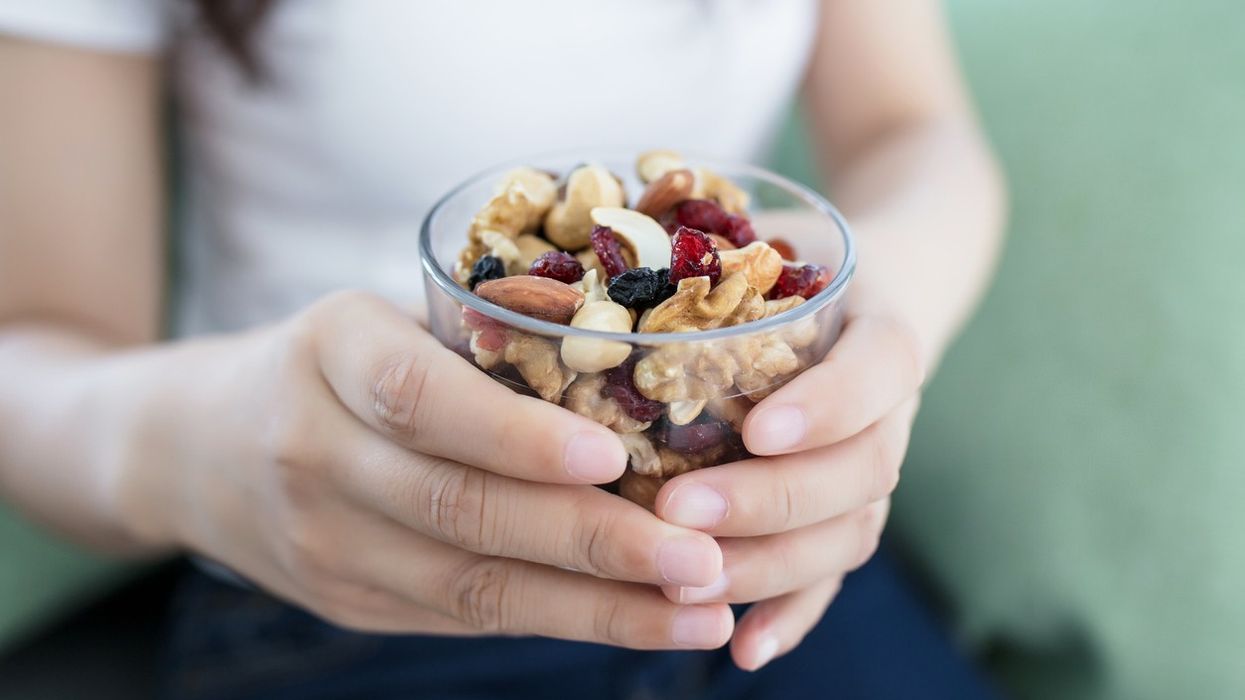Nuts and seeds are nutritional powerhouses, making them a perfect addition to your breakfast routine. Packed with essential nutrients, they offer a host of health benefits that can boost your day from the start.
1. Rich in healthy fats
Nuts and seeds, such as almonds, walnuts, chia, and flaxseeds, are rich in heart-healthy fats, particularly omega-3 fatty acids. These fats are essential for maintaining healthy cholesterol levels and reducing inflammation in the body. Including a handful of nuts or a sprinkle of seeds in your breakfast can promote cardiovascular health and lower your risk of heart disease. Omega-3 fats also play a role in improving brain function and maintaining mental clarity, which can be particularly beneficial at the beginning of your day.
Moreover, the fats found in nuts and seeds are predominantly unsaturated fats, which are considered beneficial. These fats help keep you feeling full and satisfied, curbing mid-morning hunger pangs and reducing the likelihood of eating unhealthy foods.
2. Loaded with fibre
Fibre is crucial for digestive health, and nuts and seeds are excellent sources of both soluble and insoluble fibre. Soluble fibre can help regulate blood sugar levels and lower cholesterol, while insoluble fibre supports regular bowel movements and prevents constipation.
Starting your day with a fibre-rich meal can promote a healthy digestive system, ensuring your metabolism stays on track. Seeds like chia and flaxseeds are particularly high in fibre, and incorporating them into your breakfast, such as in smoothies, porridge, or yogurt, can give your digestive health a major boost.
3. Protein powerhouse
Protein is an essential macronutrient that plays a key role in building and repairing tissues, as well as supporting muscle function. Nuts and seeds are an excellent plant-based source of protein, making them a fantastic addition to your breakfast, especially for those following a vegetarian or vegan diet.
A protein-packed breakfast helps to stabilise blood sugar levels and provides sustained energy throughout the morning. Combining nuts and seeds with other protein sources like yogurt, oats, or whole grains can help keep you feeling fuller for longer and prevent energy slumps later in the day.
4. Packed with essential vitamins and minerals
Nuts and seeds are incredibly nutrient-dense, offering a variety of vitamins and minerals that contribute to overall health and well-being. Almonds, for instance, are rich in vitamin E, a powerful antioxidant that protects cells from damage and supports skin health. Walnuts and sunflower seeds are high in B vitamins, which are important for energy production and reducing fatigue.
Additionally, seeds like pumpkin and sesame seeds are great sources of minerals like magnesium, zinc, and iron, all of which are vital for maintaining healthy bones, supporting immune function, and improving mood and energy levels. Including a small portion of mixed nuts and seeds in your breakfast can provide a range of these important nutrients, helping to set you up for a productive day.
5. Aid in weight management
Despite being calorie-dense, studies suggest that regular consumption of nuts and seeds can aid in weight management. The combination of healthy fats, fibre, and protein helps to promote satiety, reducing the urge to overeat later in the day. Since they take longer to digest, nuts and seeds can help regulate your appetite and reduce unnecessary snacking.
Furthermore, certain nuts like almonds have been shown to increase metabolism and improve fat-burning, making them an ideal snack for those trying to manage their weight. Including a moderate portion in your breakfast can help control hunger and support your weight loss or maintenance goals healthily.
How to incorporate nuts and seeds into your breakfast
Adding nuts and seeds to your breakfast can be simple and versatile. You can sprinkle a handful of mixed nuts or seeds onto your oatmeal or cereal, blend them into smoothies, or use nut butters as a spread on whole-grain toast. Chia seeds can also be soaked overnight to create a delicious chia pudding, while flaxseeds can be mixed into yogurt or added to baked goods.
Remember to opt for unsalted and unprocessed varieties of nuts and seeds to avoid added sugars or unhealthy fats. Moderation is key, as while nuts and seeds are highly nutritious, they are also calorie-dense, so it’s important to enjoy them in sensible portions.
Staple of your morning routine
Incorporating nuts and seeds into your breakfast is a simple yet effective way to boost your nutrition and start your day on the right foot. With their combination of healthy fats, fibre, protein, vitamins, and minerals, these nutrient-packed powerhouses can support heart health, digestion, energy levels, and even weight management.





